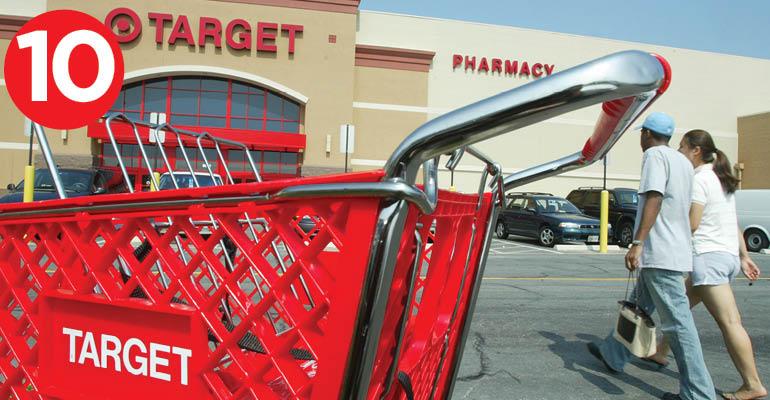- Silicon Valley’s ‘Car People’ Push Homeless Crisis to the Peak “Homeless advocates and city officials say it’s outrageous that in the shadow of a booming tech economy — where young millionaires dine on $15 wood-grilled avocado and think nothing of paying $1,000 for an iPhone X — thousands of families can’t afford a home. Many of the homeless work regular jobs, in some cases serving the very people whose sky-high net worth is the reason housing has become unaffordable for so many.” (New York Post)
- U.S. Department Stores Tap Breaks on Stocking for Holiday Season “With foot traffic at their stores in decline, department stores that would have stocked up for the biggest shopping season of the year months ago are still in the process of placing new orders, according to nearly a dozen sources including company officials, vendors who work with the retailers and consultants who advise such chains. The strategy is aimed to keep their inventory costs down and avoid the experience of previous holiday seasons, when large piles of unsold stock led to deep markdowns that eroded profits.” (Reuters)
- Net Worth of Billionaire Saudi Prince under Arrest Falls $2.8 Billion “Alwaleed’s fortune dropped $855 million on Tuesday as the share price of his holding company, Kingdom Holding—which trades on Saudi Arabia’s Tadawul exchange—continued to drop. The stock, which now comprises half of his net worth, is down 21% since the end of normal trading on Thursday, November 2. (The Tadawul is closed on Fridays and Saturdays.) Alwaleed owns 95% of Kingdom Holding; the remaining 5% trades on the Saudi stock exchange.” (Forbes)
- Republican Tax Plan Could Halt Affordable Housing Construction to a Virtual Halt “The tax plan proposed by Congressional Republicans will likely decimate production of new affordable rental housing, even as housing shortages across the country are driving rents higher and taking ever-larger shares of Americans’ incomes. The plan released last week by the House Ways and Means Committee preserves a well-regarded program called the Low Income Housing Tax Credit — but effectively guts it.” (MarketWatch)
- Drop in Mall Values Weighs Down Commercial Property Sector “Weakness in the mall sector dragged valuations lower across the entire commercial real estate market in October, according to a report by real estate research firm Green Street Advisors. Green Street’s Commercial Property Price Index, which covers property owned by real estate investment trusts, declined 1% to 125.5 in October from September, the sharpest month-over-month drop since the financial crisis.” (Wall Street Journal, subscription required)
- Nearly Half of Americans and Europeans Have Given Up on Owning Their Own Home “Almost half of Americans and Europeans have given up on ever owning their own home, according to a new study released Tuesday. Dutch bank ING found that 45% of Americans and 56% of Germans and Britons believe they’ll never be able to afford their own home, even though a clear majority (60% or more) want to. The survey reflects how a combination of rising home prices, stagnant wages, and the spread of what economists call ‘precarious’ employment—best typified by the flexible contracts of the ‘gig economy’—have combined to put home ownership beyond the reach of ordinary people.” (Fortune)
- Infrastructure Spending Can Be Funded by Treasury Bonds, And Help Savers Too “There are several credit facilities within the U.S. Treasury that can be tapped to fund infrastructure spending, and one can be reshaped to provide income for savors. Did you know that within the U.S. Treasury there is a little-used agency called the Federal Financing Bank, which was established by Congress in 1973? This agency was set up to raise money for public-private entities that offered a series of bonds to fund projects such as United States Postal Service Bonds, New Community Debentures, securities to fund the Tennessee Valley Authority and bonds to fund the Washington Metropolitan Area Transit Authority.” (Forbes)
- Sears Holdings Same-Store Sales to Drop 15.3% as Company Looks for More Cash “Sears Holdings announced Wednesday a number of steps it's taking to gain liquidity as its sales continue to erode at a double-digit pace. Sears struck an agreement with insurers of its underfunded pension fund — Pension Benefit Guaranty Corp. — to allow for the sale of 140 Sears properties, though the company didn't say when those sales will take place. In exchange, Sears said it paid $407 million to the plan.” (CNBC)
- This Steel City Might Be the Best Place to Retire in the United States “Retirees may not want to trade the white snow for white sand beaches after all. Pittsburgh, which built its fortunes in the once-booming U.S. steel industry, ranks as the No. 1 metro area to retire in the U.S., according to a report released Wednesday by personal finance website Bankrate.com. Other top cities include Boston, Los Angeles, Denver and Providence, R.I. Here’s the full top 10, per Bankrate.” (MarketWatch)
- Target Is Closing 12 Stores, Including Hastings and Fergus Falls “While Target is doubling down on stores, the Minneapolis-based retailer also has decided to pull the plug on a dozen underperforming stores. The company on Monday began notifying store employees at the 12 affected stores, which are slated to close on Feb. 3. In the Twin Cities metro area, the store in Hastings is being closed. Fergus Falls in western Minnesota also is on the list. ‘It’s not a decision we make lightly,’ said Kristy Welker, a Target spokeswoman.” (Star Tribune)
0 comments
Hide comments

